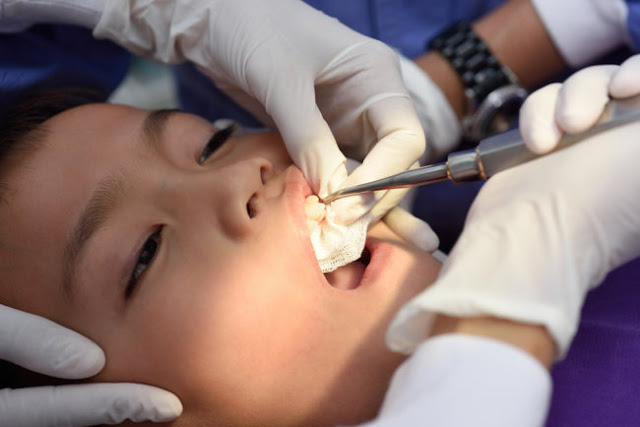Toothache Medication for Children that Parents Should Give
Toothache can affect anyone, both adults and children. Unlike adults, giving toothache medicine to children requires more special attention and should not be careless.
Toothache in children is mostly caused by cavities or teething. Symptoms include drooling, painful and throbbing teeth, gums around swollen teeth, and fever or headaches.
Father and Mother can provide toothache medicine for children to reduce the pain felt by Little, before taking it to the nearest dentist.
Toothache Medication that is Safe for Children
If the child has a toothache, parents may panic and seek an over-the-counter medication to relieve the pain. You may only give pain relievers, such as paracetamol, as a toothache medicine for children. But make sure that the drug dosage given is right and in accordance with the weight or age of your child. Remember, always read the rules of use carefully when trying to give toothache medicine to children. You are not recommended to give aspirin pain medication to children or adolescents, because this drug can increase the risk of Reye's syndrome. This syndrome is characterized by the appearance of swelling in the brain and liver. You also should not give a toothache medicine containing benzocaine to children under the age of 2 years. Benzocaine can reduce oxygen intake in a child's body. This lack of oxygen can be fatal and result in death.How to Relieve Tooth Pain in Children
In addition to providing toothache medicine for children and taking it to the dentist, there are treatments that can be done independently at home to relieve a child's toothache, namely:- Gargling using warm water, not salt water.
- Continue to clean the remnants of food tucked between teeth, using dental floss.
- To reduce pain, mix a few drops of clove oil with 2 teaspoons of olive oil or coconut oil, then apply to the affected tooth using cotton. Remind children not to swallow the oil.
- Give a cold compress to the cheeks in the tooth area that cold temperatures can help reduce pain.
- Look for swelling or boils around the teeth, because they might indicate a tooth abscess.
- Brush your teeth twice a day with toothpaste containing fluoride, for two minutes.
- Clean your teeth with dental floss once a day.
- Reduce foods and drinks that contain lots of sugar.
- Routine check up with the dentist, at least twice a year.



Komentar
Posting Komentar